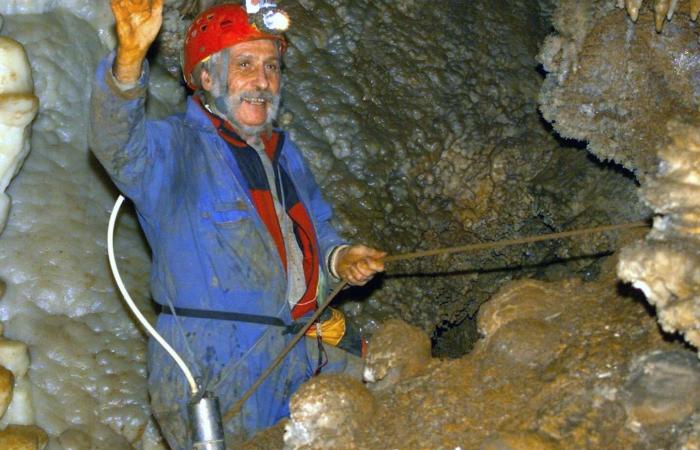Speleologist Michel Siffre, known for his extreme scientific experiments outside of time, died on Saturday August 24 in Nice at the age of 85. “Passionate about caving from a young age and a pioneer of underground confinement experiments, he notably took part in an extreme experiment in 1962 by isolating himself from the world for two months to study the notion of time.”greeted Charles Ange Ginésy, president of the Alpes-Maritimes departmental council, on the social network X.
This first scientific experiment, which had brought Michel Siffre, then only 23 years old, to the attention of the general public, had taken place in the Scarasson chasm, in the Italian Alps, on the French border, near Tende. It had led him to spend two months underground, cut off from the world, without a watch, clock or other means of knowing the time or day it was, in order to study the rhythm of waking and sleeping in such conditions.
Studying “the effect of aging on biological rhythm”
On the day of its release, September 14, 1962, “I was convinced it was August 20th”he recalled in 2017 in an interview with Monde. “So I was twenty-five days behind schedule out of fifty-eight actual “off-time” days. (…) The time I perceived was therefore passing almost half as fast as real time, and my days were actually much longer than I had estimated.”he had also noted.
Read our interview | Michel Siffre: “Underground without reference points, it is the brain that creates time”
Add to your selections
Michel Siffre had renewed this scientific adventure in 1972 when, financed by NASA, he had spent two hundred and five days underground, cut off from the world, in the Midnight Cave in Texas. His last experiment, aimed at studying “the effect of aging on biological rhythm”took place in 1999, in the Clamouse cave (Hérault).
At the end of a sixty-nine day confinement, and while 300 people had come to wait for him when he was released, he told Agence France-Presse that he was “convinced of contributing to a better approach to human sleep cycles”. “Remember that the medicines you take today at the right time are due to my first experience.”the speleologist had stressed. He had written several works, including Out of time in 1963, which recounted episodes from his life as an adventurer and scientist with a passion for speleology.







